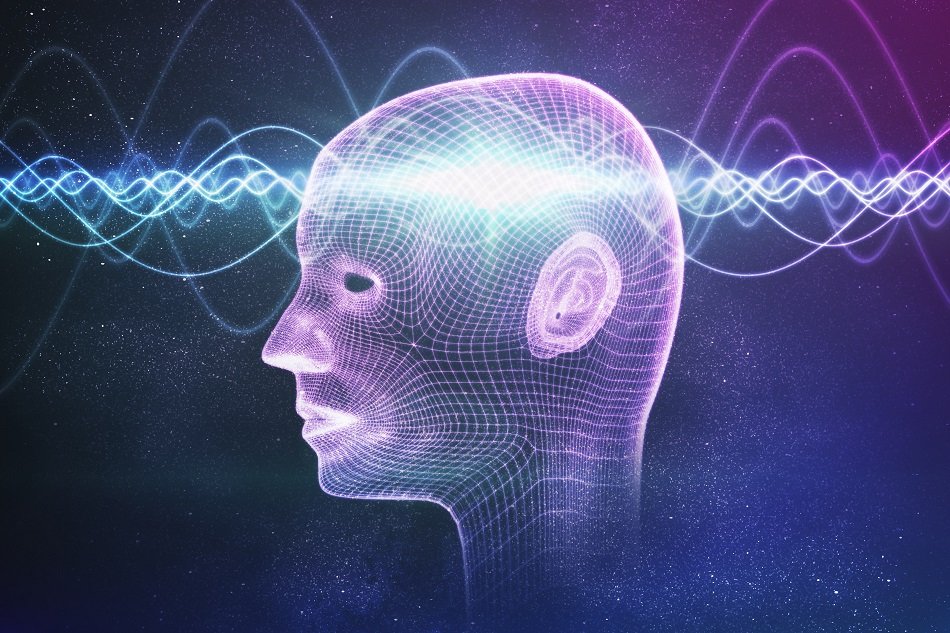
Image Credit: vchal/Shutterstock.com
Quantum physics provokes as many questions about the world as it does provide answers. Its investigations have revealed the strange nature of the tiny particles that make up all of existence, and these revelations have sparked exploration as to whether quantum physics could be used to explain consciousness.
Consciousness may Influence Quantum Physics and Vice Versa
Quantum physics is the most successful scientific theory of all time. It explains why the world is as it is, and accurately predicts a plethora of phenomena that occur in the world and the universe. It’s led to some unusual convictions about the tiny atoms, molecules, and subatomic particles that make up everything. To date, scientists still don’t know how to interpret the findings of some quantum physics experiments.
Over in another field of science, there is the problem of consciousness. Though there are many theories and studies that have attempted to quantify what exactly human consciousness is, a firm conclusion is unknown. Consequently, some researchers have attempted to explain consciousness with the equally puzzling realm of quantum physics.
The inspiration for this thinking begins with the double-slit experiment. In essence, the experiment determines that matter can be defined not only as particles but also as waves. The experiment also demonstrates that the act of observing a particle profoundly impacts its behavior.
Rather than providing answers about the physical world, the results of the experiment inspired more weird theories about the true nature of what is real, and some physicists theorized that consciousness may influence quantum physics and that it may even arise because of it. This started the exploration of how quantum theory may explain how the mind works.
In the 1980s, physicist Roger Penrose suggested that our brains could encompass molecular structures capable of altering their state in response to a quantum event. He theorized that if they did exist, then they could hold a quantum superposition state, just like the particles in the double-slit experiment that held a state similar to a wave that allowed it to be in two quantum states at once. He supposed that if this were the case then quantum superpositions may be reflected in how neurons are triggered to communicate.
Penrose later suggested that protein strands that exist in the brain could be where quantum cognition takes place. However, this idea was supposedly ruled out by experiments that concluded that quantum superpositions of the molecules that are responsible for neural signaling would not last long enough to communicate a signal anywhere.
It was this monumental puzzle that inspired the recent work of Matthew Fisher in 2015, and Christoph Simon in 2019.
The Search for Superpositions in the Brain
Fisher theorized that the nuclei of phosphorus atoms in the form of Posner molecules, which are found in abundance in living cells, could potentially sustain these quantum superpositions. He explored the idea that the nuclear spin of phosphorus could serve as a neural qubit and the phosphate ion could serve as the qubit-transporter. He also identified the Posner molecule as being able to protect these neural qubits for extended periods, giving rise to quantum-memory.
Quantum entanglement is also required for quantum-processing to exist, Fisher proposed that the entanglement of pairs of qubits could be catalyzed by the chemical reaction that breaks down pyrophosphate ions. The binding of these entangled pairs with extracellular calcium ions forms Posner molecules which inherit the qubits’ nuclear spin entanglement. In his 2015 study, Fisher suggests that Posner molecules could be transported into presynaptic neurons during vesicle endocytosis.
Finally, it was suggested that the chemical binding and the subsequent melting of pairs of Posner molecules could trigger further neurotransmitter release and that multiple entangled Posner molecules would provide the underlying mechanism for neural quantum processing. This year, Christoph Simon expanded on this research, proposing a hypothesis stating that subjective human experience results from these complex entangled state of spins.
An Influential Discovery
Classical physics fails to account for the simultaneous unity and complexity of the human subjective experience. Quantum physicists have provided a mounting body of work that supports how consciousness could be supported by quantum entanglement, which is both complex and holistic.
The work of Fisher and Simon is key in supporting evidence for this link, where the impact could influence neuroscience, quantum physics, psychophysics, philosophy, and evolutionary biology.
Sources and Further Reading
Disclaimer: The views expressed here are those of the author expressed in their private capacity and do not necessarily represent the views of AZoM.com Limited T/A AZoNetwork the owner and operator of this website. This disclaimer forms part of the Terms and conditions of use of this website.